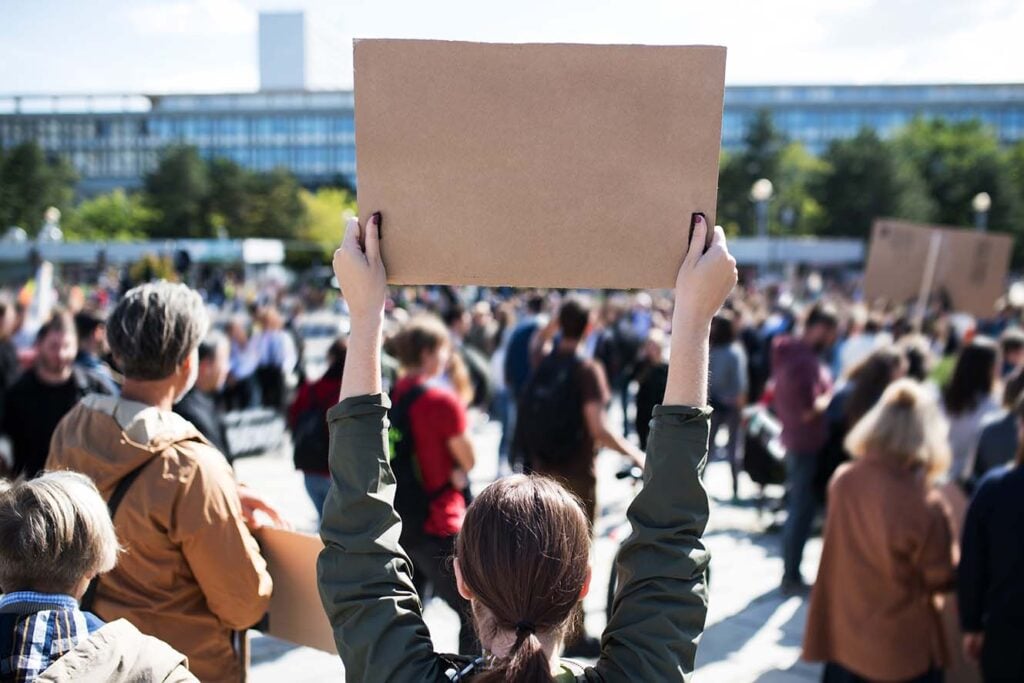Believe and Support Survivors
Given the prevalence of sexual violence, it is important that we all know how to support those impacted by sexual violence. When we provide a supportive first response, in which a survivor feels believed, they are more likely to reach out for the support that they need and deserve.
Supporting Someone who has Experienced Sexual Violence
Check out our First Responders to Sexual Abuse and Assault Training or connect with your local sexual assault centre for more information about workshops in your area.
Learn More About Sexual Violence
Do what you can to increase your understanding of sexual violence so that you can effectively speak out against it. Sexual violence is extremely prevalent, yet our response to this issue is informed by many popular misconceptions and a limited understanding of why sexual violence occurs. In many ways our social norms condone, normalize, excuse, and even encourage sexualized violence. Those who disclose are often met with disbelief and blame. Only when we decide to focus our attention on the actions of those who choose to use abusive behaviours, can we truly begin to examine and address the root causes of sexual violence.
Check out our First Responder to Sexual Abuse and Assault Training or connect with your local sexual assault centre for more information about workshops in your area.
Examine Your Attitudes and Beliefs and Hold Others Accountable to Do the Same
Embrace opportunities to reflect on your own views, values, beliefs, and biases. When you hurt someone with your words, apologize and learn. Sometimes it can be difficult to acknowledge when we are holding onto ways of thinking that can hurt others. Question what seems normal. Are you noticing sexist images? Homophobic ads? Other objectifying or abusive media? Call it out, and refuse to give your money to places that use these tactics.
Notice when friends or family members say things that make you uncomfortable, or that make fun of a group of people through implicitly or explicitly racist, sexist, ableist, or homophobic jokes and remarks. You may simply choose not to laugh. Also, a “Whoa, that’s not cool” is often all it takes to open up a conversation about the implications of harmful jokes and remarks.

Start a Conversation
Share what you have learned about the realities of sexual violence with others. Debunk popular misconceptions about sexual violence when you hear them.
Counter Victim Blaming and Hold Those Who Use Abusive Behaviours Accountable
Unfortunately, victim blaming is common. Victim blaming is the act of blaming those who are harmed by sexual violence, either partially or fully, instead of holding the person who committed the sexual violence accountable for their actions. Victim blaming can be very implicit. For example, even those with the best of intentions may recommend that an individual does not wear revealing clothing, travel alone at night, or frequent bars. Although subtle, these messages imply that by partaking in these actions, the individual is provoking or attracting sexual violence.
Focusing on the actions of the individual who experienced sexual violence will not bring about an end to sexual violence overall. Instead, we must focus on the social norms which normalize and justify someone’s choice to engage in sexually abusive behaviour. Those who use abusive behaviours need to be held accountable.
A non-victim blaming response acknowledges that people who commit sexual violence make choices to violate the bodily integrity of others, to do harm, and that they alone are responsible for these choices. Correct these misperceptions when you encounter them.
“Victim Blaming.” The Canadian Resource Centre for Victims of Crime, 2009,
Acknowledge the Power of Language
The language that society and the media use to talk about gender, children, sex, sexual abuse and sexual assault all help to shape our ideas and expectations around these issues. For example, using language that degrades and objectifies women contributes to gender inequality, which is strongly connected with an increased incidence of sexual violence. Using language typically associated with consensual sexual activity (kissing) to describe sexual assault (forced mouth to mouth contact) can minimize the negative and harmful effects of sexual violence.
Question the way that we speak about sexual violence, challenge sexist comments or jokes when you hear them, and speak up so that survivors know that they are not alone.
Critique Sexual Violence in the Media
Media has the power to shape conversations about violence in our communities. Our understanding of sexual violence is often shaped by the television, movies, music, and news that we consume. Be critical of the way that gender roles and relationships are depicted.
News stories about sexual violence affect the way we perceive sexual violence in our own communities and in society. Femifesto created a tool in recognition of the power media has in shaping understanding of sexual violence, and to support those who work in the media as they navigate covering sexual violence. Use the Right Words provides the language and frameworks required to report on sexual violence in ways that do not shame or blame survivors.

Learn More About Consent
Understanding and practicing consent within your relationships can also help to end sexual violence. Consent is voluntary agreement to engage in sexual activity. Think about consent as an ongoing conversation, and one that is embodied. Tuning in to your partner’s boundaries and reading their nonverbal cues is just as important as the verbal conversation. Consent is about respecting each other’s bodies and boundaries.
Build your Rejection Resilience
Along with consent, it is important to think about how you would respond if someone was not interested in engaging in sexual activity with you. Getting a “no” or being rejected, whatever that looks or sounds like can be painful or embarrassing. Humans have a biological need to belong. When we perceive that others view us critically, our survival instincts kick in. We may start to worry – “Will I be shunned, ignored, looked down on, laughed at, isolated, or alone? Are my worst fears coming true?” New rejections can even reactivate feelings from old rejections, including childhood traumas. It’s reasonable to want to avoid the pain or embarrassment of a “no”. The trouble is that, in trying to avoid those feelings, it can be easy to miss another person’s cues or not recognize their needs.
Visit Rejection Resilience for more information.
Practice Healthy Relationships
Talk about gender roles. Challenge traditional gender roles and stereotypes that do not align with who you are and how you want to be. Engage in and model respectful and equitable relationships.
Talk to the Children in Your Life
Teach them about different kinds of touches and the proper names of their body parts. Talk to them about the people in their lives that they could talk to if they ever had a problem or a worry – such as child sexual abuse. Talk to them about gender and gender roles. Support them to be who they want to be.
Engage the Men and Boys in Your Life
Men and boys have a unique role to play in the movement to end sexual violence, both as survivors and allies.
Engage in acts of Truth and Reconciliation
Indigenous women and girls experience disproportionally high rates of sexual violence. We all have a responsibility to engage in acts of truth and reconciliation. The final report from the Inquiry into Missing and Murdered Indigenous Women, Girls and 2SLGBTQQIA people, Reclaiming Power and Place, outlined Calls to Justice. The Truth and Reconciliation Commission’s final report prepared Calls to Action. These calls ask us to reflect on, and to call out attitudes, beliefs and behaviours that harm others, specifically Indigenous People. Reconciliation begins internally, then moves outward. We all have the responsibility to educate ourselves and others, tell the hard truths about Canada’s history, and change the trajectory of our country.

Participate in Public Awareness Campaigns
People are standing up publicly against sexual violence more than ever. Participate in public awareness campaigns that support survivors and that shift social norms.
Support Your Local Sexual Assault Centre
Call on governments to fund sexual violence services. Attend rallies, write to politicians, advocate on social media. Your voice is powerful – use it!
Consider donating to and/or volunteering at your local sexual assault centre.